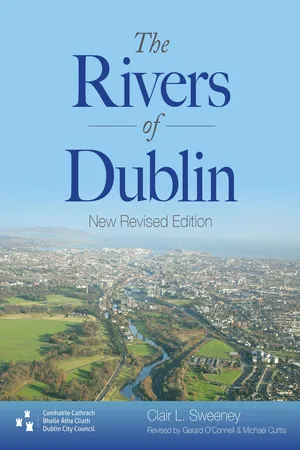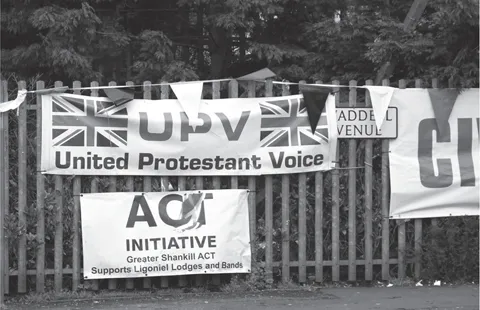![]()
PART 1
Introduction
![]()
1
SOCIAL MOVEMENTS VERSUS TERRORISM
There has never been a period of peace in Ireland. And they tell us that’s because the fucking Irish are always causing the trouble ... They started it off. They formed a national army to take over Ireland, colonize it. They kept the army here over a period of a couple of hundred years after that, to hold it. They then planted it with Protestants ... They formed a very tight, close-knit society, where no Catholic or no Irish person, ethnic Irish, could join ... And they ruled Ireland with a mailed fist – literally – a grasp of iron and nobody stepped out of line. And it’s only natural that a people are going to breed at some stage someone who says, ‘I am not going to take that.’ Now what does that make him? Does that make him a rabble-rouser? Does it make him a troublemaker? It ought to. Obviously if he stands up and hits back it makes him a combatant. A combatant, right? And it makes him, therefore, eventually a murderer and a terrorist. And if that’s what a terrorist is, I want to be a terrorist.
– Provisional Irish republican ‘Terrorist’1
More than 3,600 people were killed in the recent ‘Irish Troubles’ but other than general statements like that, there is little agreement about what happened.
A common interpretation is that the conflict was sectarian, Irish republican Catholics versus loyalist Protestants with the British caught in the middle. Padraig O’Malley, in The Uncivil Wars: Ireland Today, writes that, at its most basic level, ‘the conflict pits one million-plus Protestants who believe “the maintenance of the Union with Great Britain is the only means of securing their future” against the one half million Catholics who believe “they can only secure their future in a united Ireland”’. Steve Bruce, in The Red Hand: Protestant Paramilitaries in Northern Ireland, writes that ‘of those who are prepared to kill at all, many are quite happy to kill anyone of the other side’ and states that the two sides were ‘equally sectarian’.2
An interesting aspect of the conflict is how openly sectarian Protestant paramilitaries (‘loyalists’ – loyal to the Crown) were. In the summer of 1996, the RUC blocked a parade by the Orange Order at Drumcree Church, outside Portadown, in County Armagh. The Orange Order is a ‘Protestant fraternity’.3 A mid-Ulster loyalist described their response to the situation:
The initial plan was to hijack a number of Catholic-owned taxis in the Portadown area. They would then be taken to various locations where the cars would be burnt but the drivers released unharmed. The idea was to send a clear message to the Catholic community in the Portadown and Lurgan areas: if the Orangemen can’t walk down the Garvaghy Road then you won’t be allowed to work in any of our areas.4
Twaddell Avenue protest against a ban on Orange marches showing the support of ‘Ulster Protestant Voice’, North Belfast, 2014. ©Robert White.
It was in this context that Catholic taxi driver Michael McGoldrick was shot dead outside Lurgan. Anti-Catholic sentiments and the view that defending Protestantism is part of the loyalist identity are common themes in loyalist commentary and literature. A banner for ‘United Protestant Voice’ was part of the ongoing Twaddell Avenue protest against a ban on Orange marches in North Belfast.
In contrast, Irish republicans deny that their struggle is sectarian. Instead, they claim they were (and in some cases still are) fighting a war of national liberation against the British. In 1985, a veteran of the Provisional IRA and a Sinn Féin activist from Derry was asked, ‘Is the struggle in the North a sectarian struggle?’ He replied:
No. Well, it depends what aspect you take on it. From a republican aspect it’s not sectarian …no one can call themselves a republican and be sectarian at the same time. If there has been sectarianism it would have showed itself. And I think that an awful lot of people may have gotten involved in the Republican Movement for one reason or another but there’s a self-weeding process which means that the more people mix with republicans and talk to republicans the more obvious it becomes that any notion of sectarianism hasn’t got any place in the Republican Movement.5
The respondent claimed that sectarianism is contrary to the nature of Irish republicanism which, in the words of Wolfe Tone, seeks to unite ‘Catholic, Protestant, and Dissenter’.6
The respondent is from Derry City, however, and Derry has an Irish nationalist/Catholic majority and does not have a history of sectarian conflict. Belfast, on the other hand, has a lengthy history of sectarian conflict. One of the more notorious events of the conflict was the Belfast IRA’s attack on the Bayardo Bar in 1975 that left four people dead. The IRA claimed that loyalists paramilitaries frequented the bar. However, the deceased were Protestant civilians out for a drink at their neighbourhood tavern.7 A Sinn Féiner from Belfast was asked to comment on the sectarian nature of the conflict. He responded by saying: ‘Obviously I don’t agree with it. I think that the reasons why there is a war in the six counties are based very firmly in the political structure of the six counties ...’ His account is similar to that of the Provisional from Derry. Both claim the conflict was political, not sectarian, but the Belfast Provisional also admitted that there were sectarian activists in the Irish Republican Movement. In August 1969, Protestant mobs attacked Catholic neighbourhoods in Belfast. The Belfast Sinn Féiner was asked if there were Catholics who just wanted to hit back at the Protestants in response. He commented:
I think that there are sectarian Catholics. And I think there are sectarian people in the Republican Movement. Now I don’t think they’re in a majority ... But I think that’s a misdirected hatred. I think that what people should be doing is not looking at how they can get one up on Protestants but at how they can change the political situation. But, you’re quite right – obviously in 1969 and 1971, after the pogroms, there was a blind wish to retaliate and to kill and shoot and burn and so on. But – and I think the media particularly like to cast the Republican Movement in the role of godfathers and those that organize sectarian reprisals, and so on … it flies in the face of history ... what has happened in the North – the conflict in the North is not sectarian in that it has not originated for sectarian reasons. It’s originated for political reasons.8
These comments show some of the complexity of the conflict in Ireland and the Irish Republican Movement.9 The Provisionals were influenced by sectarian attacks, but they were non-sectarian and their inspiration – at least from the perspective of members – is political.
What people say and what they do may be very different. Table 1 summarizes the groups that killed people and their victims from the summer of 1969 until the signing of the Good Friday Agreement in 1998.10 Broadly, there were three actors: Irish republicans, Protestant paramilitaries and the security forces. The Provisional IRA was the most deadly organization, responsible for almost 1,800 fatalities. Protestant/loyalist paramilitaries, including the Ulster ...


